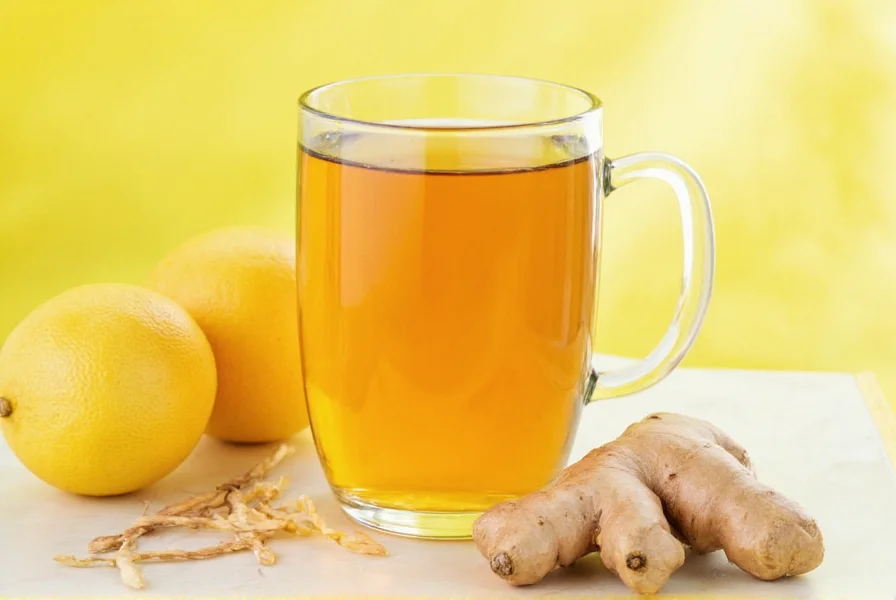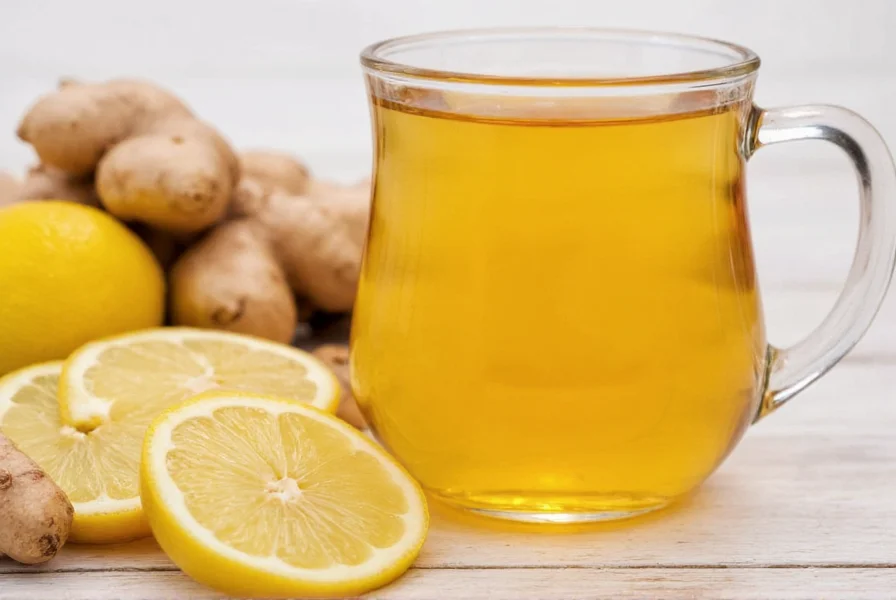For centuries, cultures worldwide have turned to ginger and lemon tea as a natural remedy for various wellness concerns. This simple beverage combines two powerful ingredients with complementary health properties. Modern research increasingly validates traditional uses while clarifying realistic expectations about its benefits. Unlike many trendy 'miracle' drinks, ginger and lemon tea offers measurable physiological effects without significant risks when consumed appropriately.
The Science Behind Ginger and Lemon Synergy
Ginger root contains bioactive compounds called gingerols that demonstrate potent anti-inflammatory and antioxidant properties in clinical studies. Lemon contributes vitamin C and flavonoids that enhance these effects through complementary mechanisms. When combined in tea form, these ingredients create a synergistic effect greater than either component alone.
A 2021 review in Nutrients journal analyzed 60 clinical trials on ginger's effects, confirming its efficacy for nausea relief and digestive support. Meanwhile, research published in Food Science & Nutrition demonstrated that lemon compounds increase the bioavailability of ginger's active components by up to 37% when consumed together.

Evidence-Based Health Benefits
Understanding the actual science behind ginger and lemon tea separates fact from popular fiction. Here's what research actually supports:
| Benefit Category | Scientific Support Level | Key Research Findings |
|---|---|---|
| Digestive Health | Strong | Reduces nausea, speeds gastric emptying, relieves indigestion symptoms |
| Inflammation Reduction | Moderate | Lowers inflammatory markers in osteoarthritis and muscle soreness |
| Immune Support | Preliminary | Vitamin C boosts immune cell function; gingerols show antiviral properties |
| Weight Management | Limited | May slightly increase metabolism; primarily supports hydration during dieting |
Practical Considerations for Daily Consumption
While many websites make extravagant claims about ginger lemon tea curing serious conditions, the reality is more nuanced. The most consistent benefits relate to digestive wellness and inflammation reduction. For how to make ginger lemon tea for digestion, use freshly grated ginger (not powder) and organic lemon with peel for maximum active compounds.
Regarding does ginger lemon tea help with weight loss, research shows modest effects at best. A 2020 clinical trial found participants drinking ginger tea lost approximately 1.5 pounds more over 12 weeks than the control group, primarily through reduced appetite rather than metabolic changes. The beverage's real value for weight management comes from replacing sugary drinks while providing hydration.
Safety Profile and Potential Interactions
Understanding ginger lemon tea side effects is crucial for safe consumption. While generally well-tolerated, excessive intake (more than 4 cups daily) may cause:
- Heartburn or acid reflux in sensitive individuals
- Increased bleeding risk when combined with blood thinners like warfarin
- Potential interactions with diabetes medications
- Worsening of gallstone symptoms
Those with gastroesophageal reflux disease (GERD) should consume ginger lemon tea between meals rather than on an empty stomach. Pregnant women can safely consume up to 1 gram of ginger daily (about 1 cup of strong tea), but should consult their healthcare provider first.
Optimal Preparation Methods
To maximize the health benefits of ginger and lemon tea, preparation matters significantly. The best time to drink ginger lemon tea depends on your goals:
- Morning: On empty stomach for digestive kickstart (wait 20 minutes before eating)
- Before meals: 20-30 minutes prior to enhance digestion
- Evening: 1-2 hours before bed for relaxation (avoid if prone to nighttime heartburn)
For optimal extraction of active compounds, steep fresh ginger slices in boiling water for 10-15 minutes before adding lemon juice. Avoid boiling the lemon directly as high heat destroys vitamin C. Adding a small amount of healthy fat (like coconut oil) can increase absorption of ginger's fat-soluble compounds.

Separating Evidence from Hype
Many websites promote ginger lemon tea as a cure-all solution, but the scientific evidence for ginger tea benefits shows more modest yet meaningful effects. While it won't cure serious diseases, regular consumption contributes to overall wellness through multiple pathways:
- Provides hydration with flavor (reducing sugary beverage consumption)
- Offers antioxidant protection against cellular damage
- Supports healthy digestion and gut motility
- May reduce inflammation markers in the body
- Creates a ritual that promotes mindfulness and relaxation
The health benefits of ginger and lemon tea are best viewed as complementary to, not replacements for, medical treatment. For specific health conditions, always consult healthcare professionals rather than relying solely on home remedies.











 浙公网安备
33010002000092号
浙公网安备
33010002000092号 浙B2-20120091-4
浙B2-20120091-4